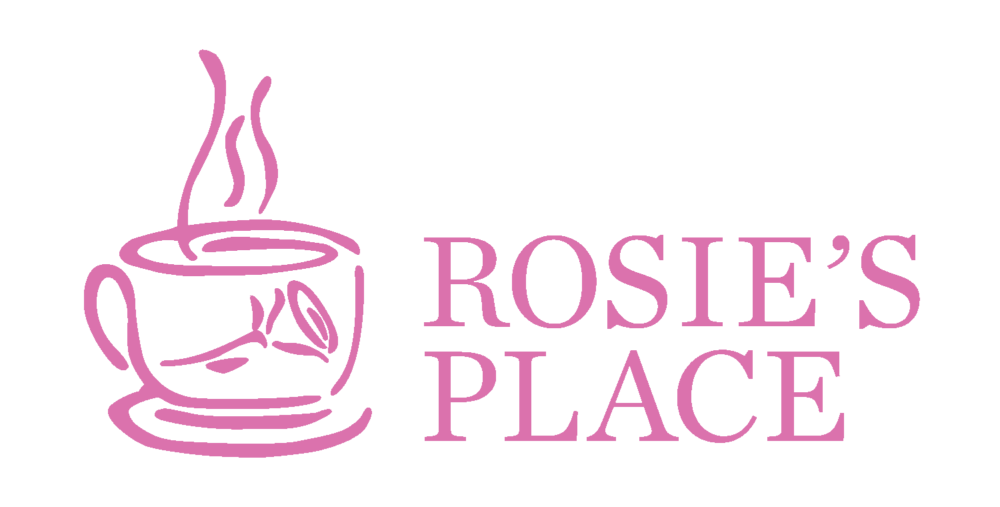
In Massachusetts today, one in ten people are living in poverty. The most vulnerable and fastest-growing demographic within this population are women and children, so it may be surprising to learn that as recently as 1973, there were no shelters for homeless women in the entire United States.

In the early 1970’s, Kip Tiernan, a social justice activist and writer, had the opportunity through her work with the St. Phillip’s/Warwick House to visit a number of housing projects, mental institutions, jails and hospitals where she was appalled by the effects of de-institutionalism and a lack of public policy to address the needs of the homeless and poor. While visiting some of the men-only shelters around the city, she was particularly struck by the sight of women dressing as men just to get a meal.
Kip founded Rosie’s Place in 1974 as a safe place for homeless and underprivileged women to get a hot, nutritional meal and escape the dangerous streets and cold of winter. It was the first women-only shelter in the country. It was also decided to accept no city, state or federal money so that Rosie’s Place could be run without the influence of outside demands or policies. Today, almost four decades later, Rosie’s Place feeds over 12,000 women per year and offers a number of other services to help the homeless women of Boston get back on their feet.
Food Programs

Rosie’s Place will first and foremost be known as a place where homeless women can get a hot meal. Located at 889 Harrison Ave in Boston, the “Dining Room” is open for Breakfast, Lunch and Dinner Monday through Friday and Brunch and Dinner on the weekends. Instead of lining up cafeteria style, the woman are served healthy meals tableside by volunteer waiters and waitresses. An average of 220 women and children rely on these meals every day.
There is also a food pantry that provides 20-40 pounds of healthy food to an average of 2,000 women per month. The women are allowed to “shop” freely and choose items including meat, dairy and a selection of seasonal fruits and vegetables from local farms, that work best for their families.
Emergency Services
In addition to serving food, Rosie’s Place also offers the following emergency or immediate needs services:
- Essential Services: The facility offers women a place to come in off the street and meet some of their most basic needs including laundry, showers, lockers to store important items, and a place to just sit and rest. The women can also use Rosie’s Place as a mailing address and have access to phones and computers.
- Overnight Shelter: The overnight program is open 365 days a year providing 20 women at a time with a place to sleep for up to 21 days.
- Health and Wellness: Women who come to Rosie’s Place have access to medical assistance including but not limited to: blood pressure and blood sugar checks, STD and HIV testing, assistance with detox, dental check-ups and more. This is possible through partnerships with a wide variety of community-based health agencies
Opportunity

Rosie’s Place wants to get women off the streets and they do so by offering services to find new opportunities.
- Education: They offer education services including ESL classes, tutoring, computer classes and more. Each course involves an intimate learning experience with no more than eight students. Over 170 volunteer teachers, private tutors, and substitutes are trained by certified staff to teach over 350 students weekly.
- Housing: Through HomeStart, a number of housing search specialists help women to find available housing, fill out applications and stay on top of the entire process.
- Job Search: Similar to housing, Rosie’s Place has partnered with Community Work Services to provide specialized job search services on-site helping women apply for, attain and maintain gainful employment.
Advocacy and Empowerment

A multi-lingual staff of advocates assist the women with a multitude of issues including:
- Advocacy: Every woman has a number of short- and long-term needs that need to be addressed. Rosie’s place employs advocates to assist them with things like housing, health and wellness, support groups, clothing, transportation, emergency funds and more. Advocates schedule more than 1,100 appointments each month.
- Legal Aid: Many women who end up at Rosie’s Place need legal assistance to be able to move forward. The legal program consults with over 700 attorneys to address issues such as housing, family law, immigration, debt, and more.
- Arts: Rosie’s Place wants to offer the women they serve more than just the basic necessities. They offer a calendar of guest art classes and workshops as well the opportunity to attend performances and exhibits in the area. Last year, nearly 5,000 guests took part in 200 workshops and field trips. They also regularly host musical, dance and stand up performances during dinner service.
The people at Rosie’s Place believe in enriching the lives of women, even after they no longer require their services. That’s why they offer outreach services to follow up with past guests to make sure they’re on the right path and are able to maintain their new way of life. They also have a Friendly Visitors volunteer program that connect weekly with women who are more isolated, providing them with a friend they can chat with and confide in.
All of these programs, combined with the hard work and dedication of the hundreds of volunteers, is what makes Rosie’s Place truly special. It is not just a shelter, but a community of staff and volunteers working with the homeless and vulnerable women and children of the city of Boston to help them live a better life.
If you’re interested in learning more about Rosie’s Place or would like to apply to volunteer, click HERE.
